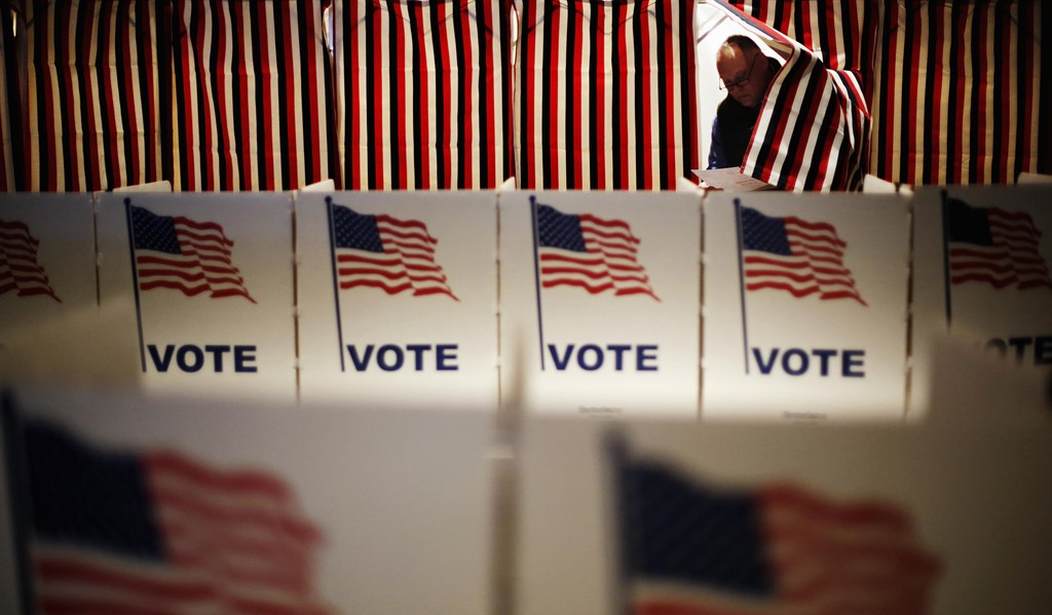Whether the Democrats keep Hillary, settle for Bernie, or reach out for Joe Biden and Elizabeth Warren remains to be seen, but they know victory in November will not be easy. There is one way to ensure it, however.
It’s not about gaining delegates and managing conventions. It’s about electronic voting. You’d think Republicans would run from high-risk electronic voting systems, but Utah’s Republican establishment thought differently. In its recent primary, GOP voters could vote via computer, tablets, and smartphones, all because of a UK company called Smartmatic—this according to a Breitbart release by Aaron Klein on March 20, 2016. Cool, but dangerous.
Never mind that the chairman of Smartmatic is Gordon Malloch-Brown, BFF to George Soros and board member on Soros’s Open Society Foundation, and other Soros-financed organizations. Never mind Smartmatic and all others claim their security is fraud-proof. That’s like saying they can accurately count every leaf on a large maple tree, and come November, tell us which are red and which are not.
Democrats like to say Republicans are anti-online voting because such freedoms keep the poor away from the polls. These are the same people who claim it’s too hard for the poor to obtain Voter IDs, but voting via their personal computer, tablet, or cell phone—which must be less expensive than a Voter ID?—will make them full citizens.
A new book summarized by its author, Michael Waldman, on Billmoyers.com is The Fight to Vote and parrots the claim progressives drag in front of us to prove there is little or no vote fraud in U.S. elections. The entire article focuses on in-person vote fraud, one-off anecdotes, of which there are, indeed, relatively few examples. Yet, the author goes on and on about the “GOP witch hunt for voter fraud” without once discussing the probability of large-scale electronic or online vote fraud. The magician’s trick of shining a bright light on one part of the stage while keeping the real action in shadow nicely deflects us from the real—not imagined—threat of massive electronic vote fraud.
Recommended
While many states have begun to recognize the ridiculous ease with which a third party or foreign power might upend an election, there remain many others operating without a safety net. According to Ballotpedia.org, fourteen states still do Direct Recording Electronic (DRE) System voting with and without a paper trail (emphasis added).Among them are Florida, Indiana, Kentucky, New Jersey, Pennsylvania, South Carolina, Texas, and Virginia—at least four being key battleground states. Interestingly, it was Virginia that stress-tested its voting systems and found one company so vulnerable to third party hacking it was de-certified from operating within the state (see its report from April 15, 2015).
Thankfully, twenty states still do business the old-fashioned, safe and secure way: paper ballot, but the pressure is on them to “modernize.” To what expense? In a USAToday piece from September 19, 2012, it was reported that, “in 2010, a University of Michigan assistant professor of computer science and three assistants hacked into Washington, DC’s online voting system during a test. They manipulated it undetected, even programming it to play the Michigan fight song.” “Too many states are choosing convenience over reliability,” the paper reported, and without a paper trail of any kind, “there’s no way to know whether the machine has recorded the vote accurately, or for that matter, recorded it at all.” In one 2004 example, in Carteret County, NC, 4530 electronic votes evaporated when the equipment ran out of memory.
Amazingly, California may be ahead of the game. According to Thomas Elias, in a story from thecalifornian.com on March 30, 2016, predictions of “massive” fraud when former state Secretary of State Debra Bowen permitted online voter registration in all 58 counties proved unfounded. Now that there is a November initiate on the state ballot to permit voting via the Internet, Elias says, “the doomsayers may be correct.”
Democrats believe online voting will enhance (their) voter turnout. “Backers insist votes can be made secure and encrypted in ways that are almost impossible to hack. But the same was said of electronic voting machines. That was before Bowen conducted her ‘top to bottom’ review of those gadgets and essentially ordered almost all of them scrapped or resold to other sates and countries because of the ease with which votes cast on them could be ‘flipped.’” (emphasis added.) Gee, which states?
Backers also insist, says Ricky Ribeiro in statetechmagazine.com in March 2016, that because we can buy cars or anything else online, we ought to be able to vote that way as well. The difference, he notes, is that e-commerce tolerates a certain amount of fraud, while in our sacred election processes, zero tolerance must be the norm.
Elias strategizes how organized hackers, as he calls them, might attack certain elections and certain races, but not others. “Which means,” he concludes, “only a fool would support any move to put voting online, where there’s no hope for a countable ‘paper trail’ that Bowen began requiring about a decade ago.”
But what “organized hackers” are he referring to, you wonder. In a recent Bloomberg Businessweek article, Jordan Robertson et al. detail Andres Sepulveda’s claims to have spent eight years stealing elections in Latin America—in places like Colombia, Honduras, Venezuela, and in July 2012, perhaps, the presidency of Mexico. While the president-elect, Enrique Pena Nieto talked about fighting corruption, Sepulveda was in a Bogota apartment, 2000 miles away, destroying all the evidence of having hacked the election in Nieto’s favor. There are no claims, by the way, Nieto knew of or had anything to do with Sepulveda’s activities.
In 2015, anonymous sources claimed Sepulveda’s alleged sponsor, a Miami political consultant named Rendon, had gone to work for the Trump campaign, but all parties disavow any such connection. Rendon dislikes Trump, it was said, but has been in talks with another leading U.S. presidential campaign.
Wanna guess who?

























Join the conversation as a VIP Member